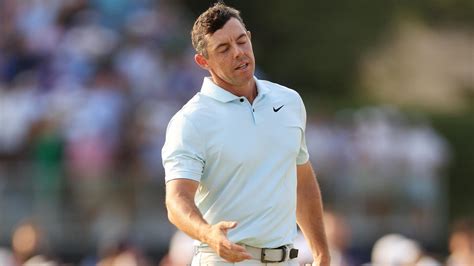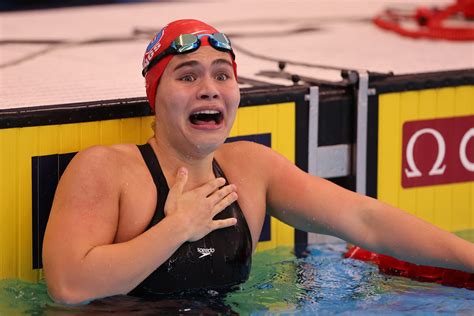
Coco Gauff has responded to Aryna Sabalenka’s complaints regarding the French Open schedule, suggesting that gripes about unfair scheduling are part and parcel of professional tennis and that all players face similar challenges. Sabalenka, the world No. 2, had voiced concerns about playing her quarterfinal match shortly after finishing a lengthy fourth-round encounter, which she implied disadvantaged her against Mirra Andreeva.
World No. 3 Coco Gauff has weighed in on Aryna Sabalenka’s complaints about the French Open schedule, arguing that scheduling grievances are a common reality in professional tennis and not unique to any one player. Sabalenka, the second-ranked player globally, expressed her frustration after a quarterfinal loss to Mirra Andreeva, suggesting that the quick turnaround from a challenging fourth-round match put her at a disadvantage. Gauff’s response highlights the competitive pressures and logistical demands inherent in major tournaments, where players must adapt to fluctuating schedules and varying recovery times.
Speaking to reporters after her own quarterfinal victory, Gauff acknowledged the difficulties players face in managing their schedules during Grand Slam events. “Everybody goes through it. I mean, yeah, it’s not ideal to play a late match then an early match,” Gauff said, adding, “But I think in tennis, you just got to be prepared. I mean, the schedule is not made for you; it’s made for, you know, TV and for the tournament.” Her comments underscored the reality that tournament scheduling often prioritizes broadcast considerations and overall event logistics over individual player preferences. This perspective suggests a pragmatic acceptance of the scheduling challenges that come with competing at the highest levels of professional tennis.
Sabalenka’s specific complaint centered on the short recovery time between her fourth-round win against Emma Navarro, which extended over three sets, and her subsequent quarterfinal clash with Andreeva. She implied that the tight schedule impacted her performance, leading to her defeat. However, Gauff’s remarks serve as a counterpoint, suggesting that adapting to such conditions is a crucial aspect of being a professional athlete.
Gauff further elaborated on the universality of scheduling challenges, noting that players across the board face similar obstacles. “I’m sure if you asked other players, they have probably played back-to-back days or late-night matches,” she said. This statement emphasizes that while Sabalenka’s concerns are valid, they are not isolated incidents, and most players experience comparable situations throughout their careers.
The American star’s response also subtly highlighted the mental fortitude required to succeed in professional tennis. By suggesting that players need to be prepared for unpredictable schedules, Gauff underscored the importance of resilience and adaptability. This mindset allows players to manage their energy levels effectively and maintain a competitive edge, regardless of the circumstances.
In addition to addressing Sabalenka’s concerns, Gauff also reflected on her own experiences with challenging schedules. While she acknowledged that playing late matches followed by early matches is less than ideal, she reiterated the need for a proactive and adaptable approach. “It’s happened to me multiple times, so I just try to, you know, go to sleep as soon as possible and recover as best as I can,” Gauff explained. This personal insight provided a practical perspective on how top athletes cope with the demands of tournament scheduling.
The debate over scheduling fairness is not new to professional tennis. Over the years, numerous players have voiced their frustrations about the perceived inequities in match times and recovery periods. These complaints often stem from the physical and mental toll that Grand Slam events take on athletes, particularly those who advance deep into the tournament. The discussions frequently revolve around the balance between accommodating broadcast schedules, ensuring fair competition, and safeguarding player welfare.
Historically, tournament organizers have maintained that scheduling decisions are made with the best interests of the event as a whole in mind, considering factors such as television viewership, crowd attendance, and logistical constraints. However, player advocates have argued that greater consideration should be given to the physical demands placed on athletes, advocating for more equitable distribution of match times and longer recovery periods between matches.
The issue of scheduling fairness is further complicated by the fact that different players have different preferences and needs. Some players prefer to play during the day, while others thrive in evening matches. Some players recover quickly from strenuous matches, while others require more time to recuperate. Balancing these diverse needs while also meeting the demands of broadcasters and spectators presents a significant challenge for tournament organizers.
In recent years, there has been a growing awareness of the importance of player welfare in professional tennis. The physical and mental health of athletes has become a central topic of discussion, leading to some changes in tournament scheduling and rules. For example, some tournaments have implemented stricter limits on the number of consecutive days that players can be required to play, while others have increased the amount of time allotted for recovery between matches.
However, despite these efforts, scheduling controversies continue to arise, highlighting the ongoing tension between the various stakeholders in professional tennis. The debate over fairness is likely to persist as long as tournaments are faced with the challenge of balancing competitive integrity, commercial interests, and player welfare.
Coco Gauff’s response to Aryna Sabalenka’s complaints reflects a broader understanding of the realities of professional tennis. While acknowledging the validity of Sabalenka’s concerns, Gauff’s remarks emphasize the importance of adaptability, resilience, and mental fortitude in navigating the challenges of tournament scheduling. Her perspective provides a valuable insight into the mindset of a top athlete who has learned to thrive in a demanding and unpredictable environment.
Gauff’s comments also sparked further discussion among fans and analysts about the optimal approach to scheduling in major tennis tournaments. While some supported Sabalenka’s right to voice her concerns, others echoed Gauff’s sentiment that dealing with unfavorable schedules is simply part of the job. The discussion highlighted the complex interplay between player welfare, broadcast demands, and the overall integrity of the competition.
The issue of scheduling has also been a recurring theme in the context of other major sporting events. In professional basketball, for example, players and coaches often complain about the frequency of back-to-back games and the impact on player fatigue and performance. Similarly, in professional soccer, concerns have been raised about the number of matches players are required to play in a short period, particularly during international tournaments.
These parallels across different sports underscore the universal challenges of balancing competitive demands with player welfare. While each sport has its own unique considerations, the underlying issue remains the same: how to create a schedule that is both fair to the athletes and appealing to fans and broadcasters.
The debate over scheduling in professional tennis is also closely linked to the broader issue of player compensation and working conditions. While top players like Gauff and Sabalenka earn substantial sums of money, many lower-ranked players struggle to make a living from the sport. These players often face even greater challenges in managing their schedules and recovery times, as they lack the resources to hire extensive support teams or travel in comfort.
Advocates for player rights have called for greater transparency and fairness in the allocation of tournament prize money, as well as improved working conditions for all players, regardless of their ranking. These efforts aim to create a more sustainable and equitable environment for professional tennis players, ensuring that they are able to pursue their careers without sacrificing their health and well-being.
In the wake of Gauff’s response, several other players weighed in on the scheduling debate, offering a range of perspectives on the issue. Some players echoed Sabalenka’s concerns, arguing that tournament organizers should do more to accommodate the needs of athletes, while others sided with Gauff, emphasizing the importance of adaptability and mental toughness.
The diversity of opinions within the player community highlights the complexity of the scheduling issue and the lack of a clear consensus on the optimal approach. While some players may prioritize fairness and player welfare, others may be more focused on maximizing their exposure and earnings. Balancing these competing interests remains a significant challenge for tournament organizers and player representatives.
Ultimately, the debate over scheduling fairness in professional tennis is likely to continue for the foreseeable future. As long as tournaments are faced with the challenge of balancing competitive integrity, commercial interests, and player welfare, controversies are bound to arise. However, by fostering open dialogue and collaboration between players, organizers, and broadcasters, it may be possible to create a more equitable and sustainable environment for the sport.
Gauff’s measured and pragmatic response serves as a reminder that while scheduling challenges are a reality of professional tennis, they can be overcome with resilience, adaptability, and a focus on maximizing recovery. Her perspective offers valuable insight into the mindset of a top athlete who has learned to thrive in a demanding and unpredictable environment, setting an example for other players to follow. The ongoing discussion surrounding scheduling fairness underscores the importance of prioritizing player welfare and ensuring a level playing field for all competitors, contributing to the long-term health and sustainability of the sport. The incident also highlights the media scrutiny that top athletes face, as their words and actions are often dissected and analyzed by fans and commentators alike. Gauff’s ability to navigate these pressures with grace and composure is a testament to her maturity and professionalism.
The scheduling controversy also shines a light on the broader challenges facing professional athletes in terms of balancing their careers with their personal lives. The demands of training, travel, and competition can take a toll on athletes’ physical and mental health, making it difficult to maintain healthy relationships and pursue other interests. As a result, many athletes struggle with burnout, anxiety, and depression.
In recent years, there has been a growing awareness of the importance of mental health in sports, with more athletes speaking out about their own struggles and advocating for greater support and resources. This has led to some positive changes, such as the implementation of mental health programs and the provision of counseling services for athletes. However, there is still much work to be done to ensure that athletes are able to prioritize their well-being and thrive both on and off the field.
The issue of scheduling fairness is also closely related to the broader topic of gender equality in sports. Historically, female athletes have often faced greater challenges in terms of scheduling, prize money, and media coverage. While progress has been made in recent years, disparities still persist in many sports.
Advocates for gender equality have called for greater investment in women’s sports, as well as more equitable treatment of female athletes in terms of scheduling, prize money, and media coverage. These efforts aim to create a more level playing field for all athletes, regardless of their gender, and to ensure that women have the same opportunities to succeed as men.
Coco Gauff’s response to Aryna Sabalenka’s complaints has sparked a broader conversation about the challenges facing professional tennis players, including scheduling fairness, player welfare, and gender equality. While there is no easy solution to these complex issues, by fostering open dialogue and collaboration between players, organizers, and broadcasters, it may be possible to create a more equitable and sustainable environment for the sport.
The episode also underscores the importance of leadership in sports. As one of the rising stars in women’s tennis, Gauff has emerged as a role model for younger players, demonstrating the importance of both athletic excellence and personal integrity. Her willingness to speak out on important issues and to advocate for positive change has earned her the respect of fans and peers alike.
In the long run, the success of professional tennis will depend on its ability to adapt to the changing needs and expectations of players, fans, and sponsors. By prioritizing player welfare, promoting gender equality, and fostering open dialogue, the sport can ensure that it remains vibrant and relevant for generations to come. The scheduling debate serves as a reminder that constant vigilance and adaptation are necessary to maintain fairness and competitiveness in the ever-evolving world of professional sports.
The dynamic between Gauff and Sabalenka also adds an intriguing layer to the story. As two of the top players in the world, their rivalry is sure to intensify in the coming years. Their contrasting personalities and approaches to the game make for a compelling narrative, and their future encounters are certain to draw significant attention from fans and media.
The controversy also highlights the business side of professional tennis. The demands of television networks and sponsors often influence scheduling decisions, sometimes at the expense of player welfare. Balancing these competing interests is a constant challenge for tournament organizers, who must navigate a complex web of relationships and obligations.
Ultimately, the scheduling debate is a microcosm of the broader issues facing professional sports today. The relentless pursuit of revenue and entertainment can sometimes overshadow the importance of fairness, player welfare, and ethical conduct. As the sports industry continues to grow and evolve, it is crucial that these values remain at the forefront of decision-making.
Coco Gauff’s mature and thoughtful response to Aryna Sabalenka’s complaints demonstrates her understanding of the complexities of professional tennis. Her perspective is a valuable contribution to the ongoing conversation about scheduling fairness and player welfare, and her leadership on and off the court makes her a true ambassador for the sport. The incident will likely lead to further discussions and potential adjustments in how tournaments are scheduled, aiming to create a more balanced and player-friendly environment.
Frequently Asked Questions (FAQ)
1. What was Aryna Sabalenka’s original complaint regarding the French Open schedule?
Aryna Sabalenka, the world No. 2, expressed frustration over the quick turnaround between her lengthy fourth-round match against Emma Navarro and her subsequent quarterfinal match against Mirra Andreeva. She implied that the limited recovery time negatively impacted her performance and contributed to her defeat.
2. What was Coco Gauff’s response to Sabalenka’s complaints?
Coco Gauff responded by stating that scheduling grievances are common in professional tennis and not unique to any single player. She emphasized that players need to be prepared to adapt to challenging schedules, as tournament scheduling often prioritizes television and event logistics. Gauff noted that players regularly face back-to-back days or late-night matches.
3. How did Gauff explain the reasoning behind tournament scheduling decisions?
Gauff explained that tournament schedules are primarily designed for television broadcasts and the overall logistics of the event, rather than being tailored to individual player preferences. She acknowledged that this can lead to less-than-ideal scheduling situations for players but emphasized the need to be prepared and adaptable. As Gauff mentioned, “the schedule is not made for you; it’s made for, you know, TV and for the tournament.”
4. Has scheduling fairness been a recurring issue in professional tennis?
Yes, scheduling fairness has been a long-standing and recurring issue in professional tennis. Numerous players have voiced concerns over the years about perceived inequities in match times and recovery periods, particularly during Grand Slam events. This often revolves around the balance between accommodating broadcast schedules, ensuring fair competition, and safeguarding player welfare.
5. What are some of the broader issues related to scheduling in professional sports beyond tennis?
Beyond tennis, scheduling issues are prevalent in various professional sports. In basketball, players and coaches often complain about back-to-back games and their impact on player fatigue. Similarly, in soccer, concerns have been raised about the number of matches players are required to play in a short period, especially during international tournaments. These examples highlight the universal challenge of balancing competitive demands with player welfare across different sports.









